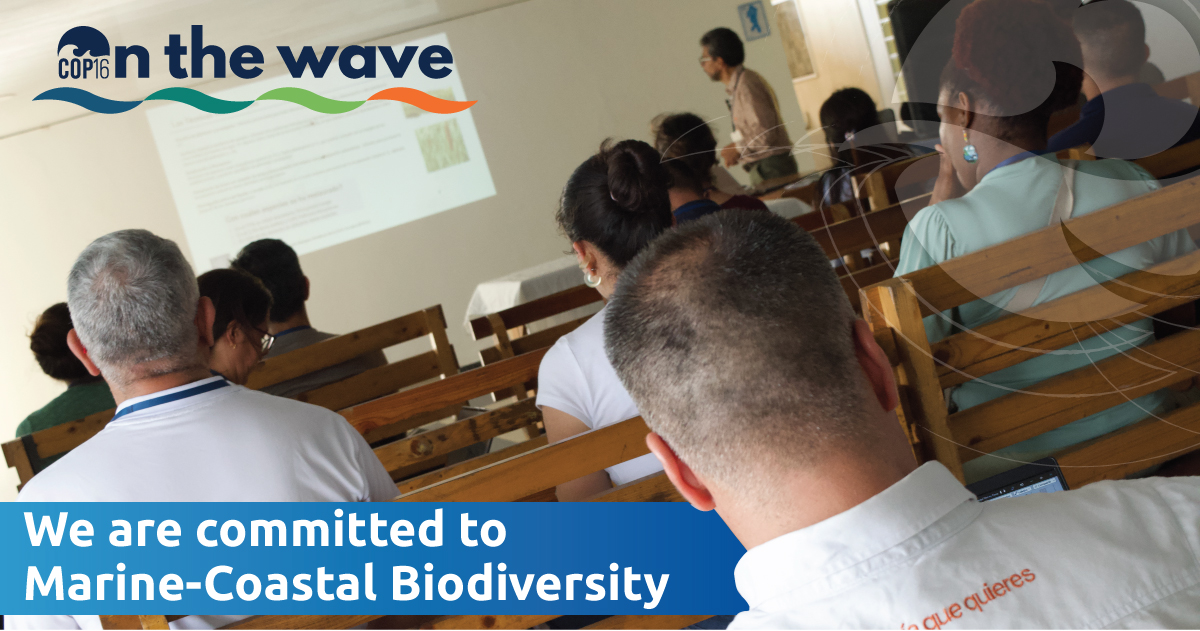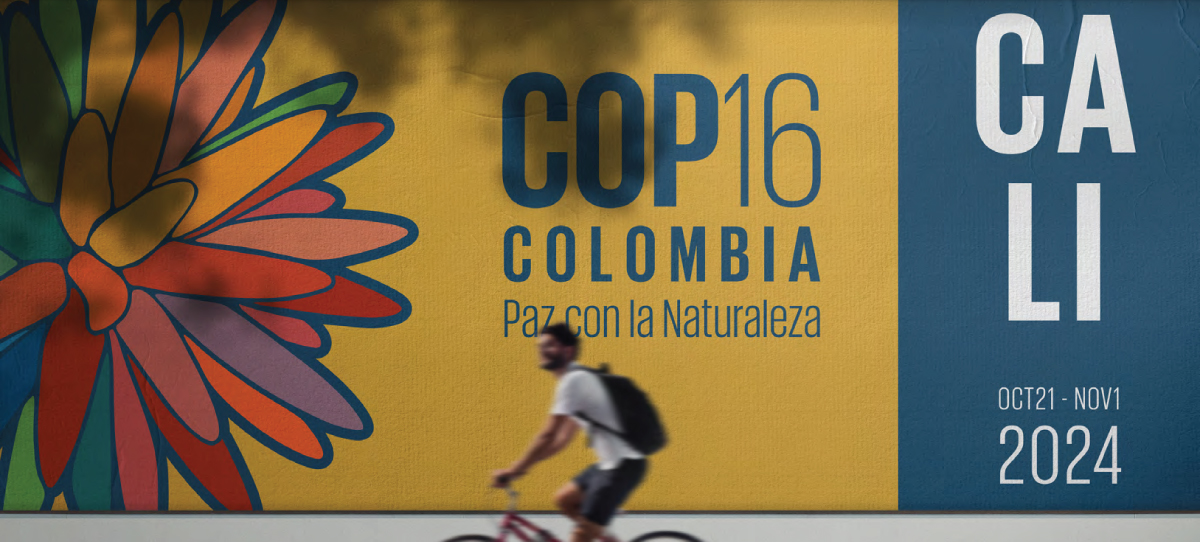
06 Sep Discover the academic activities around COP16
The countdown continues, and expectations surrounding the academic activities around COP16 are high. Meanwhile, Colombia is preparing to welcome leaders, experts, and representatives from various sectors to address the multiple challenges and opportunities regarding climate change and the sustainable development of biodiversity.
COP16’s main goal is to consolidate and advance the 23 global commitments of the Kunming-Montreal Global Biodiversity Framework for biodiversity conservation, fostering adaptation, promoting a low-carbon economy, and ensuring community inclusion.
“Making peace with nature” is Colombia’s proposal, represented in its logo by an endemic Colombian species, the “Inírida Flower.” Its leaves express the 23 targets and the vibrant colors of biodiversity—this is a flower that never sheds its petals. In this sense, it is expected that participants will discuss and adopt enduring policies and strategies that can be implemented both locally and globally to address this planetary challenge.

CEMarin is committed to immersive learning
in the Colombian Pacific
Cali and the entire Valle del Cauca region will host various academic activities around COP16, including seminars, courses, workshops, and conferences. But our commitment goes further—we have designed a collaborative experience with the local communities of the Colombian Pacific, building a hands-on academic agenda for our course “Green Strategies for Blue Ecosystems.“
This course will take place from October 16 to 19, a week before the start of COP16, and will cover various locations in the Colombian Pacific. It will bring science to the territories and unite scientific knowledge with ancestral wisdom to address environmental challenges. It is the ideal opportunity to understand firsthand how Nature-based Solutions are key to territorial development, conservation, adaptation, and resilience of coastal-marine biodiversity.
These academic activities around COP16 will not only help establish a solid foundation of knowledge and awareness among participants but also provide a crucial space for collaboration and networking between the different sectors involved in the fight against climate change.
Visiting coastal communities and different ecosystems guides us toward more precise solutions, while discussions among various actors broaden our knowledge and help better direct strategies for conservation. For this reason, our course focuses on learning directly in the field, where we can interact more closely with the real challenges evidenced in these territories.
Expectations and Participation
COP16 promises to be a historic event for the region, not only because of the quality and relevance of the topics to be discussed but also due to the diversity of its participants. Delegates from various countries, as well as representatives from international organizations, civil society, the public and private sectors, and Black and Indigenous communities, are expected to attend. This diversity will enrich discussions and allow challenges to be addressed from multiple perspectives, ensuring an inclusive and holistic approach.
In conclusion, we can say that COP16, “The People’s COP,” is focused on action, inclusion, and collaboration. The academic activities around COP16, such as our course, will play a fundamental and significant role in impacting blue ecosystems, thanks to multisectoral participation that guarantees the building of an informed and committed consensus.


